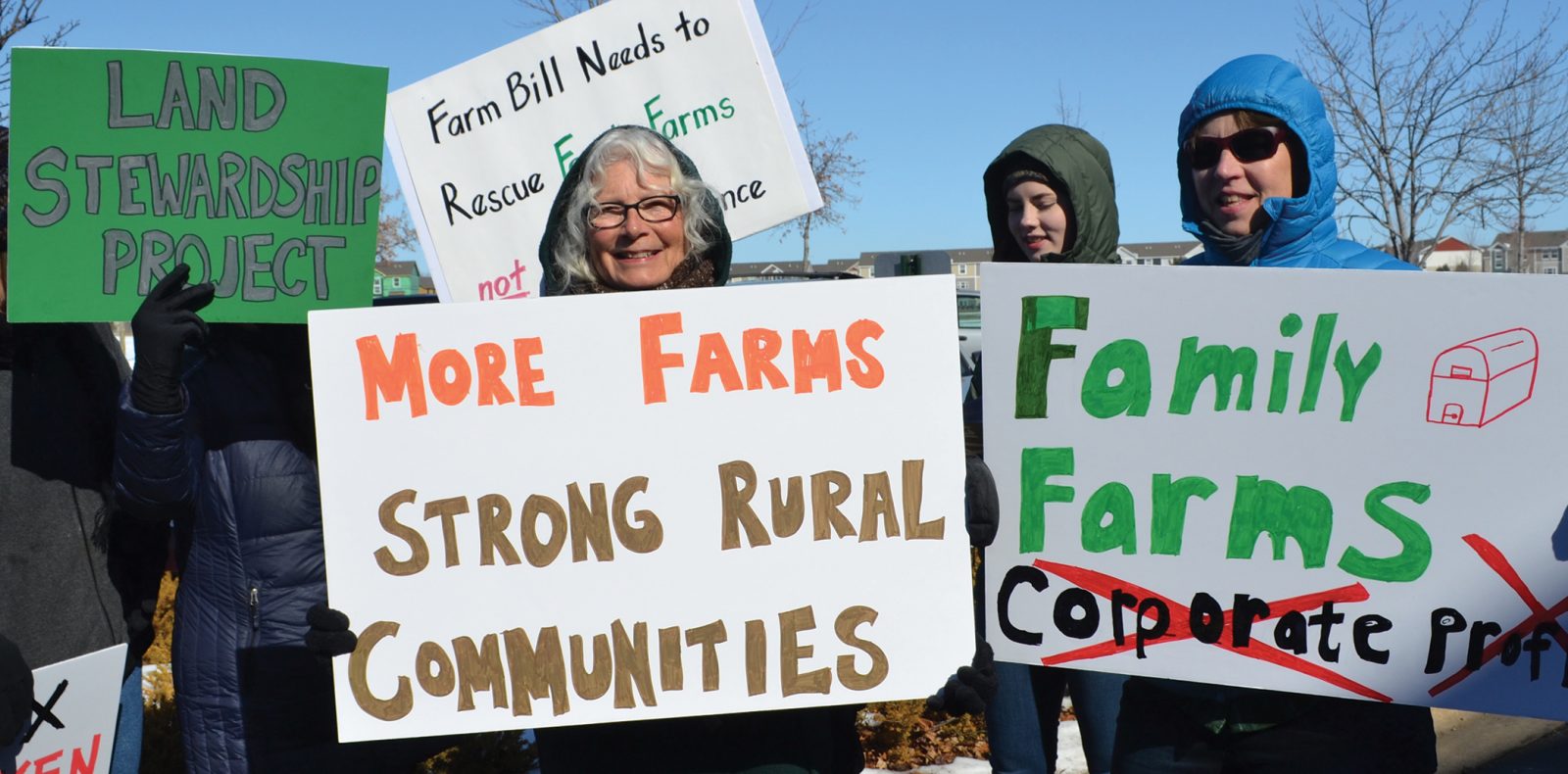MINNEAPOLIS, Minn. — The Land Stewardship Project (LSP) applauded the White House’s recent signing of an Executive Order on Promoting Competition in the American Economy, and sees it is an important step toward addressing a legacy of corporate control in our food and farm system.
The executive order, which was issued July 9, directs the USDA to consider issuing new rules under the Packers and Stockyards Act to provide additional protections to livestock farmers. It also encourages the USDA to develop a plan to increase opportunities for farmers to access markets and receive a fair return, and calls on the Department to consider issuing new rules that close current loopholes allowing meat that was born, raised and slaughtered in another country to be labeled as a “Product of the USA” if it was processed in the United States. The Packers and Stockyards Act, a 100-year-old law, was originally designed to protect poultry and hog farmers and cattle ranchers from unfair, deceptive, and anti-competitive practices in meat markets.
Beth Slocum, an LSP member who raises livestock in Goodhue County, Minn., said the Biden Administration needs to address the fact that corporate consolidation in the meat sector has negative impacts on packing plant workers and consumers, as well as farmers.
“Increased line speeds in the packing plants and an unwillingness to immediately protect workers from the pandemic brought this corporate system to a halt and shut out contract producers who were in line to have their animals slaughtered and processed, causing thousands of animals to be euthanized, shorting our food supply and raising consumer prices,” she said. “On top of that, many small, local processing plants have gone out of business because of corporate consolidation in the food system. This ends up costing us, the local independent livestock producers, more.”
Kristin Tombers, owner of Clancey’s Meats in Minneapolis, said consolidation in the food system never has positive implications for small and midsized farmers.
“For a brief period during the pandemic, people realized the fragility of a corporate-controlled food supply chain,” she said. “As a small retail meat shop, we talked to farmers that had nowhere to go with their animals, and we heard from small processors about the pressure and barriers they faced having to turn away customers with no alternatives. Small and midsized farmers provide stewardship of the land for our own health and the health of the planet, and their critical role should be acknowledged and supported.”
Excessive corporate control in our food system jeopardizes the viability of thriving rural communities and the opportunity to build resilient and equitable food systems, said Bonnie Haugen, an LSP member and dairy farmer from Fillmore County, Minn. Mega-dairies often receive volume discounts from processors, flooding the market and sending milk prices plummeting while leaving fewer opportunities for small and midsized dairies to get a fair price for their milk.
“Corporate control of the food system negatively affects our farm by making us a price taker instead of having the opportunity to be a price maker,” she said. “We milk 150 cows and do have a cooperative willing to buy our milk this year, but we wonder about security. Some farms have not gotten much notice before they were dropped off the milk pick-up route. If that happened to us, we may be forced to quit milking, and the timing could be financially disastrous.”
The executive order also “encourages” the Federal Trade Commission to limit powerful equipment manufacturers from restricting people’s ability to use independent repair shops or do DIY repairs, which could have a major impact on farmers’ ability to affordably maintain their equipment.
LSP is committed to supporting a food system where diversified small- and medium-sized farms can thrive, and the health of all rural people is a priority, said LSP organizer Sarah Goldman, adding that the organization’s members and staff will be monitoring the implementation of the Executive Order on Promoting Competition in the American Economy.
“The interconnected problems plaguing small and midsized farms and rural communities for years, including fragile supply chains, underpaid and unprotected food chain workers, and untenable economic conditions for independent family farms, are rooted in a system that values corporate profits over people,” she said.
-30-
The Land Stewardship Project is a 39-year-old membership organization that works to foster an ethic of stewardship for farmland, to promote sustainable agriculture and to develop healthy communities. LSP has offices in the Minnesota communities of Lewiston, Montevideo and south Minneapolis.
